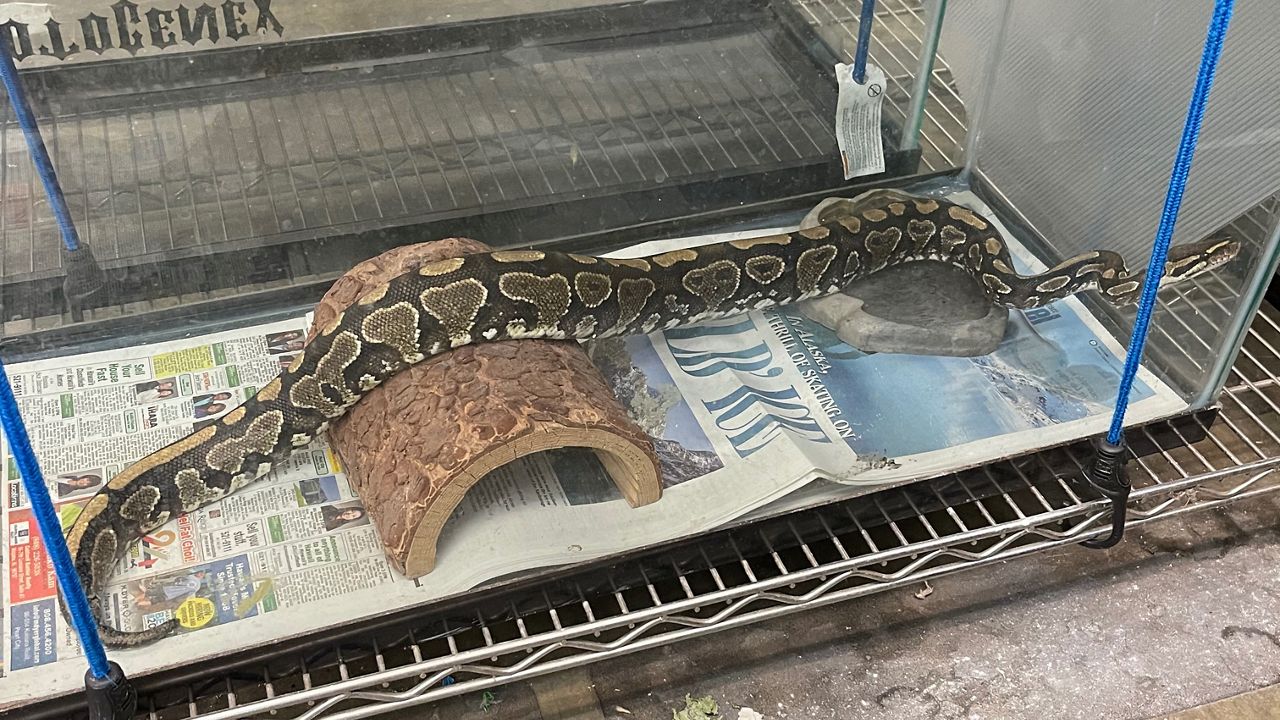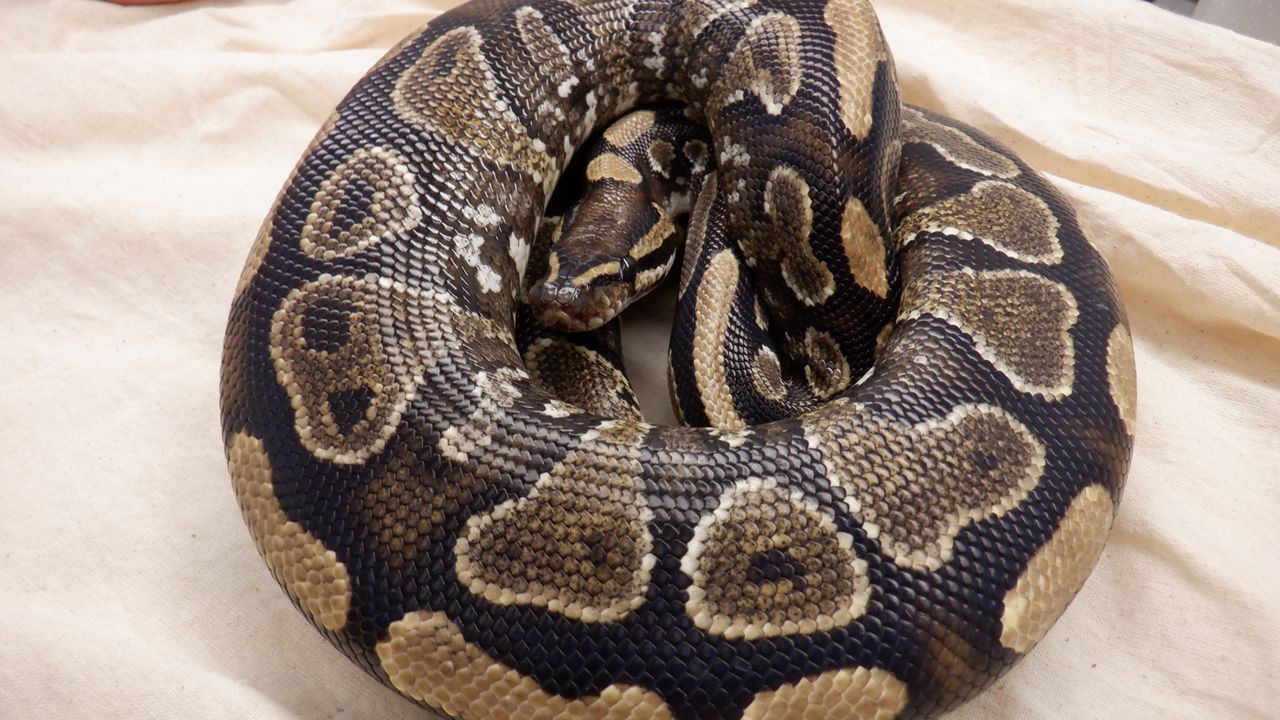WAIPAHU, Hawaii — Honolulu police officers found a ball python snake in a Waipahu home while doing a wellness check on Saturday for a man who turned out to be dead.
“We should all be very concerned that snakes are being transported and kept by residents which are a serious threat to Hawaii's unique environment,” said Sharon Hurd, chairperson of the Hawaii Board of Agriculture, in a news release.
HPD contacted the Hawaii Department of Agriculture’s Plant Quarantine Branch. After inspectors arrived at the scene, they took custody of the non-venomous snake.
The snake measures about 3-and-a-half feet long.

Ball pythons are common in the pet trade, native to Western and West-Central Africa, and are constrictors that subdue their prey — small mammals and birds — by coiling around and suffocating them. They are called ball pythons because they curl into a ball when stressed or frightened.
In Hawaii, it is illegal to own a pet snake or bring a snake to the islands. There are no snakes in Hawaii, except for the brahminy blind snake, a small non-venomous snake from Asia and Africa that resembles an earthworm. Snakes and large reptiles pose a threat to the ecosystem, since they have no natural predators.
HDOA informed the Attorney General about the incident. Possessing illegal animals in Hawaii is a class C felony, and those charged may face fines up to $200,000 and three years in prison.
“Those who know anyone with snakes or other illegal animals in Hawaii should report it and those who possess them should turn them in under amnesty,” said Hurd. “The state’s Amnesty Program was established to help prevent illegal animals from being released into the wild where it could be devastating if populations become established.”
Under the state’s Amnesty Program, individuals may bring illegal animals to any zoo or aquarium, the Hawaii Department of Agriculture office or the Hawaiian Humane Society. If an individual turns in an illegal animal before an investigation is started, they will not be criminally charged or fined. Animals turned in will not be euthanized. Instead, the animals may be used for educational purposes, transferred to a municipal zoo or moved to a facility on the mainland.
Michelle Broder Van Dyke covers the Hawaiian Islands for Spectrum News Hawaii. Email her at michelle.brodervandyke@charter.com.





